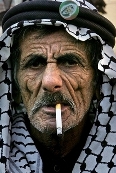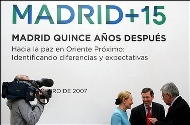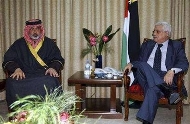Omertà is a popular attitude, common in areas of southern Italy, such as Sicily, Calabria and Campania, where criminal organizations like the Mafia, 'Ndrangheta and Camorra are strong. Omertà implies never collaborating with the authorities, or the police in particular. It can be intended also as a vow of silence among Mafiosi. A common definition is the "law of silence." (Source: Wikipedia).
In the occupied Palestinian territories, Omertà has come to embody society’s unspoken law of silence towards atrocities committed against individuals in the name of "honour," patriotism, family loyalty, among other normative principles of which the victims are accused of undermining. The executioners’ ethical point of reference in punishing the accused is, at best, a severe blow to Palestinian efforts to foster a free and democratic society governed by the rule of law.
One of the most common patterns of such atrocities takes place against Palestinian women in the name of “honour,” particularly the killing of females suspected of engaging in sexual activities outside marriage. In 2006 alone, 60 Palestinian women were reported murdered (by Palestinians) in the West Bank and the Gaza Strip on the basis of "honour." The alarming reality is that these figures only represent a mere fraction of all cases of killings, punishment, and retribution against women, who not only fall victim to a viciously conservative society (particularly in isolated Palestinian communities), but equally, to a consistent sense of apathy by Palestinians in tackling this taboo issue.
The 60 cases filed in 2006 represent the minority of incidents where witnesses took the odd step of reporting these crimes to the authorities; there are countless other cases in which this harshest form of violence against women remains locked up in the memories of indifferent members of the community who choose to distance themselves from these so called “shameful acts.” Meanwhile, Palestinian law remains ambiguous towards holding perpetrators of "honour" killings accountable, and in most cases it is an anachronistic Palestinian (Arab) tribal code of conduct which supersedes any set of legal framework or principles.
While "honour" killings take place more frequently and more consistently than any other form of atrocity committed by Palestinians against each other, another trend is increasingly posing equal alarm among Palestinian civil society, namely the killing of Palestinians suspected of collaboration with the Israeli occupation.
Due to the circumstances in which these killings and executions take place, it is difficult to draw an accurate figure of such cases; however it would be safe to assert that dozens of Palestinians have been executed by paramilitary elements since the outbreak of the Intifada in September 2000, on the basis of their collaboration with Israel.
Despite wide consensus among Palestinians that collaboration with the Israeli authorities (for the clear purpose of targeting and killing Palestinian activists and freedom fighters) constitutes an unforgivable crime against the Palestinian people and an absolute betrayal of their just cause, the imperatives of a democratic and free society requires an institutional-legal, rather than vigilante, retribution to this crime. First, a coherent process of a fair trial, in which evidence is brought before a court of law, must take place to prevent false accusation, and second, the form and extent of punishment must be governed by a clear legal foundation, not least to regulate and limit the implementation of the death penalty in the Palestinian territories (another setback to Palestinian civil society to which special focus must be allocated).
Ultimately, it is not only the occurrence of such executions above the law which raises concern, but rather the unwillingness of most Palestinians, collectively and as individual citizens, to prevent them. Again, the socio-cultural sensitivities attached to these issues place serious limitations to the readiness of Palestinians to take action; however, no one claims that the road to liberation (particularly self liberation) is without challenge.
The Palestinian national struggle, and the concerted efforts of our society to rid itself of Israel’s brutal and illegal occupation of our land, must not blind us before the virtues of our own humanity; above all else, it is the soul of Palestine that must be preserved.
Rami Bathish is director of the Media and Information Programme at the Palestinian Initiative for the Promotion of Global Dialogue and Democracy (MIFTAH). He can be contacted at mip@miftah.org











